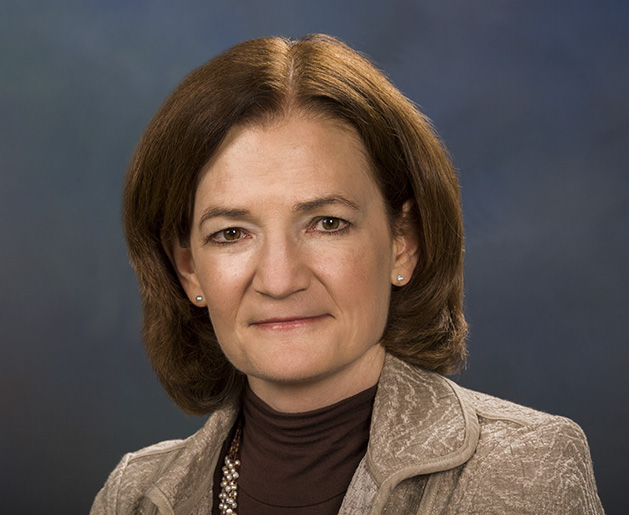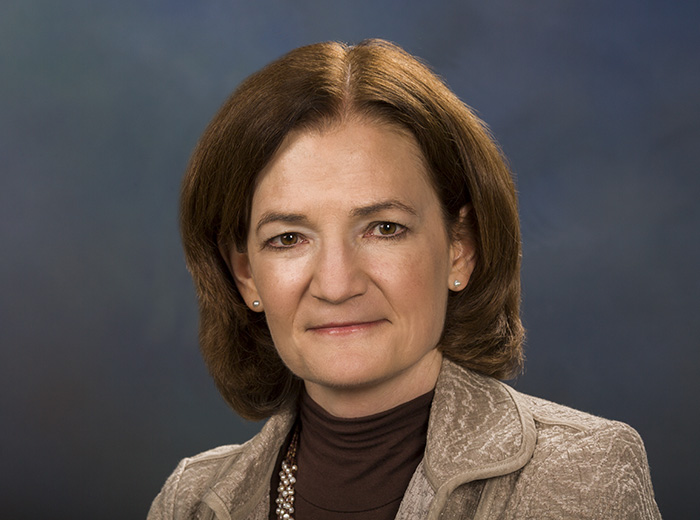Carol J. Burns has been named Deputy Director for Research for Lawrence Berkeley National Laboratory, effective August 1. 
In this role, she will develop, implement, and steward Berkeley Lab’s research enterprise and serve as the Lab’s chief research liaison with key stakeholders, primarily the DOE Office of Science, the University of California, and the other national labs.
As part of the Lab’s senior leadership team and working with the Lab director, Burns will envision and implement Berkeley Lab’s research and technology development strategies and fundamentally shape the Lab’s workforce of tomorrow.
Burns brings more than 25 years of scientific leadership experience in a national laboratory setting. In prior roles at Los Alamos National Laboratory (LANL), she managed organizations conducting work from very early-stage research to operational programs. In her most recent role as Executive Officer to the Deputy Director for Science, Technology, and Engineering, she helped oversee research and programmatic efforts in Chemistry, Earth and Life Sciences, Global Security, Physical Sciences, and Simulation and Computation.
“Carol’s ability to work across scientific disciplines to shepherd initiatives and point them in the right direction has led to very successful programs in Los Alamos and in the White House Office of Science and Technology Policy,” says Berkeley Lab Director Mike Witherell. “Her skillful relationship and consensus building, along with her deep understanding of the strengths of different national laboratories, has enabled her to create productive collaborations across the system. I am looking forward to working with her to bring the Lab’s unique capabilities into focus as a key contributor to the national labs’ collective efforts to address U.S. priorities.”
Burns stewarded LANL’s educational and pipeline efforts, research integrity office, technology transfer work, and the Laboratory-Directed Research and Development (LDRD) program. She also championed workforce development and gender diversity issues. For example, she worked with senior women leaders in the DOE complex to formulate recommendations to the National Laboratory Directors Council for enhancing diversity and engagement. She initiated a postdoc entrepreneurial fellowship at LANL.
She also is known for working closely with lab functions that support science. Most recently she worked with colleagues to establish policies and systems to address complex institutional challenges during the pandemic.
Burns has deep experience with science policy at the national level, honed during her three years as a senior policy analyst for Homeland and National Security in the White House Office of Science and Technology Policy (OSTP).
She is an expert in actinide chemistry and has maintained a research program in actinide coordination and organometallic chemistry, even as she has served in management roles. She pioneered the development of an entirely new class of high-valent uranium compounds containing metal-ligand multiple bonds, supported by cyclopentadienyl ligands. This work has contributed substantially to the understanding of the electronic structure of the early actinides, and inspires current work in the field.
Burns received her B.A. in Chemistry from Rice University and her Ph.D. in Chemistry as a Hertz Foundation Fellow at the University of California at Berkeley. She then joined Los Alamos as a J. Robert Oppenheimer Postdoctoral Fellow.
She is the recipient of numerous awards for scientific achievement and leadership, most recently the American Chemical Society’s 2020 Francis P. Garvan-John M. Olin Medal, which recognizes distinguished service in chemistry by female chemists. She is a fellow of the American Association for the Advancement of Science.
Burns will replace Deputy Lab Director for Research Horst Simon, who announced his plans to step down from his position last August.
###
Founded in 1931 on the belief that the biggest scientific challenges are best addressed by teams, Lawrence Berkeley National Laboratory and its scientists have been recognized with 14 Nobel Prizes. Today, Berkeley Lab researchers develop sustainable energy and environmental solutions, create useful new materials, advance the frontiers of computing, and probe the mysteries of life, matter, and the universe. Scientists from around the world rely on the Lab’s facilities for their own discovery science. Berkeley Lab is a multiprogram national laboratory, managed by the University of California for the U.S. Department of Energy’s Office of Science.
DOE’s Office of Science is the single largest supporter of basic research in the physical sciences in the United States, and is working to address some of the most pressing challenges of our time. For more information, please visit energy.gov/science.
